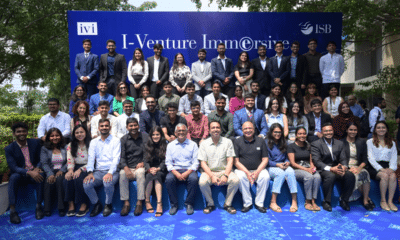Startup & Entrepreneurship
3 tips for entrepreneurs to attain balance between a company’s culture and sustainable growth
Revenues and profits are often the cause of celebration for a business, however, it is the people that make these successes possible.
Startups usually function on small teams with each one playing their respective parts, in a race against time, towards a common goal. As the startup begins to scale, the math of profitability and business, among other things, begins to increasingly consume time. However, en-route to becoming a scalable business, it is imperative to strike the right balance between sustainable growth and the company’s culture.
While it may sound simple, the process of a startup metamorphosing into a mature business includes volatility in the pursuit of ambition. This strive to be successful at all costs along with the initial euphoria makes it a little complicated to keep track. Oftentimes, entrepreneurs understand the importance of acquiring and managing talent, the flag-bearers of a company’s positivity and energy but are unable to – for multiple reasons – invest time and effort in nurturing this.
Work culture goes beyond designer offices with sleep pods, recreational spaces and free food and beverage. Culture, whether in a startup or not, is something that founders either discover or craft and foster as the pulse of their organisation. So while business begins to hit the path of success and plan out sustainability, here are a few things to shape great work culture.
Bringing life to a company’s culture
Sometimes, an organisation’s “culture” is reduced to little more than just a buzzword by founders. A founder’s vision is what gives birth to and shapes organisational culture which harnesses the purpose, ethics, values and principles of the business. It goes beyond just adding definition to these – it brings life to them. For example, while recruiting, it is undoubtedly important to on-board candidates of competence. However, the candidates should also display the values, et al – therefore giving business milestones and value-life equal importance, as much as possible.
Work culture where everyone is an entrepreneur
While individual objectives vary depending on individual functions, all employees are required to come together to collaborate in pursuit of an overall common objective. Therefore, growth should not disturb a firm’s agility to do that. The entrepreneurial mindset of employees, within their respective roles, should be nurtured irrespective of an organisation’s size and scale. Team structures, control, decision-making and accountability need to be reviewed intermittently so as to avoid dabbing in a bureaucratic approach and loss of democracy within the firm.
Upskilling, learning and development
Encouraging members across functions and levels to have an entrepreneurial approach not only makes for ownership of duties but also fuels inquisitivity – leading to upskilling. In a startup environment of limited human resource and lack of man-power, upskilling and learning is a constant. Big businesses and corporates invest in various learning and development programmes (L&D programmes) for their employees. However, not all startups may have the funds to afford this, initially. Many successful startups have invested early on in their life-cycle through time instead of budgets for development programmes. Online and offline programmes help define skills required for leadership roles to the employees. They are also good tools to retain employees and identify evangelists or example-setters at the workplace. Revenues and profits are often the cause of celebration for a business, however, it is the people that make these successes possible. Therefore, presenting them with opportunity programmes alongside recognition helps with sustainable growth.












































